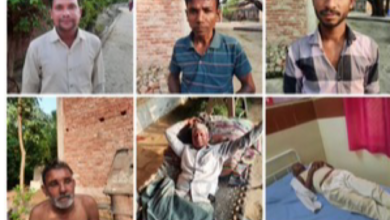Battleground Bengal: With four voting phases left, TMC is mostly relying on perception-oriented campaigning
Kolkata, 10 May With only four phases of the West Bengal Lok Sabha elections left, it seems that the Trinamool Congress is relying mostly on perception-based campaigning to offset the anti-incumbency sentiment.

Following the cancellation of 25,753 teaching and non-teaching positions in state-run schools by the Division Bench of the Calcutta High Court, Mamata Banerjee, the Chief Minister, and other leaders of the Trinamool Congress accused a segment of the judiciary of being biased and working for a specific political party.
Abhishek Banerjee, general secretary of the Trinamool Congress, called the Calcutta High Court’s decision “order-fixing” and “court-fixing.”
In reality, CPI (M) Rajya Sabha member and seasoned lawyer Bikash Ranjan Bhattacharya filed a petition asking the Calcutta High Court’s Division Bench of Chief Justice TS Sivagnanam to take suo motu cognizance of Mamata Banerjee’s recent anti-judiciary remarks.
According to political analysts, the effort aims to portray some members of the judiciary as “villains” with the knowledge that the governing party may suffer a significant setback in the middle of the elections due to the court judgment.
The judiciary was portrayed as a messiah as part of the same perception-driven campaign, after the chief justice of India, DY Chandrachud, and the Division Bench of the highest court’s temporary stay of the Calcutta High Court’s decision terminating employment.
The Supreme Court’s loaded remarks about “systemic fraud” in the hiring process were easily disregarded by the Trinamool Congress leadership, including the Chief Minister.
They called the order “great relief” and only mentioned the temporary stay.
Legal experts claim that this is an intentional effort to misunderstand the ruling of the supreme court, whereby the decision is projected as being “set aside” in the context of an “interim stay.”
Legal experts point out that the West Bengal School Service Commission (WBSSC) was ordered by the Supreme Court to investigate if any supplementary information was available to separate the 25,753 individuals who had lawful appointments.
From a legal perspective, this implies that the legitimate appointees’ future will only be guaranteed if the WBSSC can demonstrate in court that it was able to separate the legitimate appointments using a justifiable process.
The second issue that the ruling party is focusing on is the series of sting operation videos that were just made public. In them, people are heard and seen claiming that the BJP in West Bengal was behind the Sandeshkhali women’s protests against sexual harassment by some Trinamool Congress leaders.
In one of the films, local BJP leader Gangadhar Kayal was heard and seen stating that Suvendu Adhikari, the Leader of the Opposition in the West Bengal Assembly, had given him the task of convincing a few local ladies to coordinate the action.
Kayal quickly asserted that the speech modulation in the video was artificial intelligence-generated. In order to request a probe into the situation, he also went to the CBI.
The Trinamool Congress was even challenged by the BJP leadership to submit the footage to the court.
To discredit the state administration and the governing party, the Trinamool Congress is actively promoting the film and spreading the idea that the Sandeshkhali demonstrations were planned by the BJP.
A few ladies from Sandeshkhali were shown in the second sting operation film, asserting that they signed the sexual harassment accusations without reading what was stated there.
The BJP is allegedly utilizing the video to undermine women’s dignity at Sandeshkhali in order to forward its political agenda, according to the Trinamool Congress.
Although the veracity of these sting operation recordings is being questioned, analysts draw attention to two crucial points that the governing party is purposefully avoiding in this campaign focused on perception.
The first is that only after holding a thorough hearing on many Public Interest Litigations (PILs) filed in the case did the Calcutta High Court order a CBI investigation into the allegations of sexual harassment, unlawful land grabbing, and extortion in Sandeshkhali.
The Supreme Court declined to postpone the ruling, notwithstanding the West Bengal government’s appeal to the Calcutta High Court order. The court even questioned the state government’s motivation for filing the plea in order to defend the rights of some private people.
The second point is that, despite the enormous number of women participating in the protests in Sandeshkhali, not many of them appear in the sting footage.







